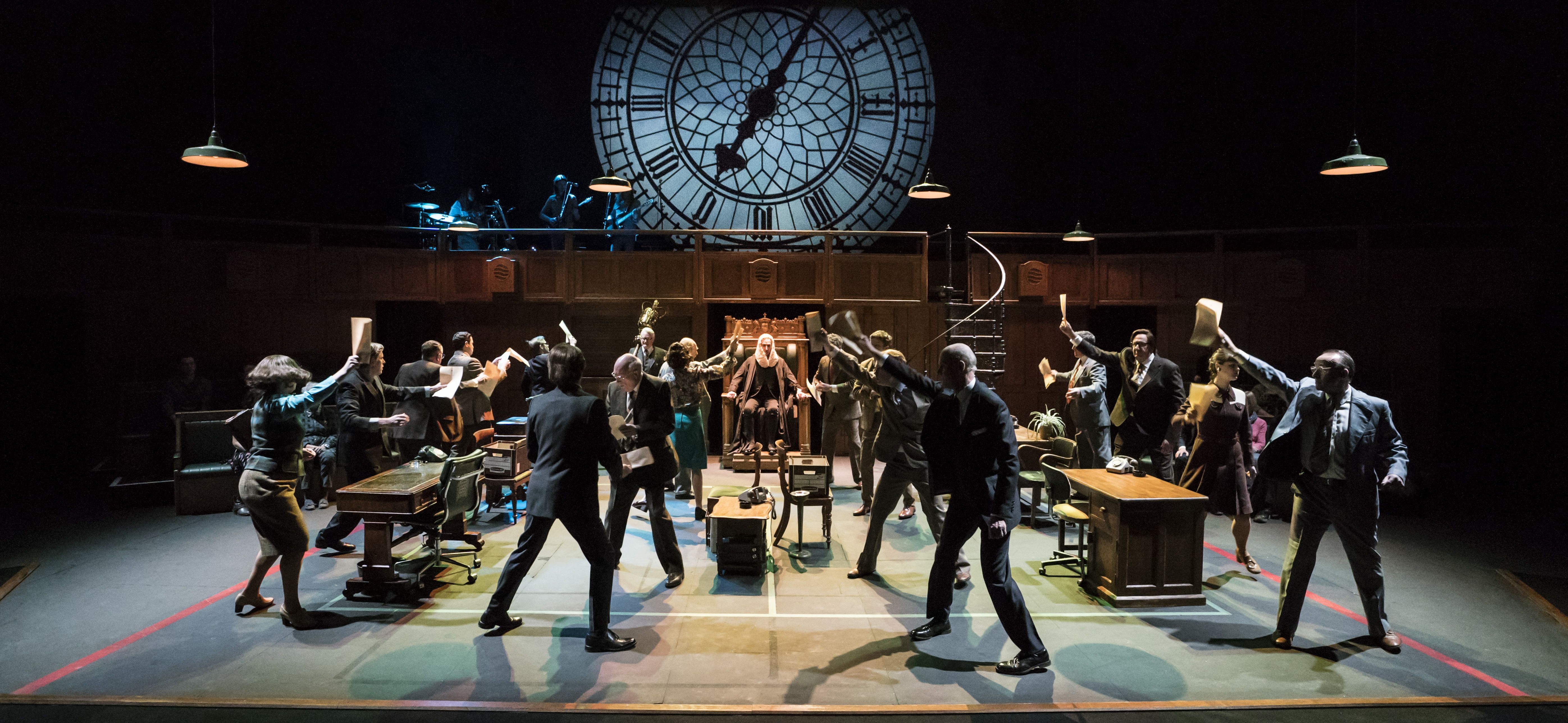This House review: “it’s the best civics lesson you’ve ever had”
James Graham is one of the nation’s finest playwrights. After seeing This House for a second time this past Tuesday, that statement is undoubtable in my mind.
Graham – whose works have included the Channel 4 film Coalition, The Vote at the Donmar Warehouse, Labour of Love at the Noel Coward theatre (which just won the Olivier for Best New Comedy) and Ink – has a very specific style of witty comedy mixed with the drama of characters deeply in conflict with themselves over the right thing to do. And, more often than not, his characters are people whose actions can change the course of history.
James Graham’s characters are people whose actions can change the course of history
This is certainly the case for the play which arguably made his name, This House, which premiered at the National Theatre in 2012 and has enjoyed a West End revival in 2016 and now a tour. It tells the story of the 1974-79 Labour government, which was originally elected as a minority government, then gained a majority of three. By focusing on the rival Tory and Labour whips offices, Graham presents the drama of two sides scrambling to put things into motion in little more than a deadlock.
The Labour whips’ office is made up of the “Cockney geezer” Bob Mellish (Martin Marquez), Big Ben enthusiast Michael Cocks (Tony Turner), and first female whip, Ann Taylor (Natalie Grady). All three give very respectable performances, capturing both the comedy of their roles and the determination. This can equally be said for the Tory deputy whip Jack Weatherill (Matthew Pidgeon). However, the true heart of the show has to be James Gaddas as Labour deputy whip Walter Harrison. Confident in a kind of low-key way, he swaggers through the first half of the show before revealing a full range of emotion in act two as his character has to decide how much he will do to keep Labour in power.
These visual representations make complicated political concepts easy for the audience to understand
The task is different for the ensemble members. They are called upon to perform about half a dozen characters each and their characters are broad and often very entertaining. While they might not be given a chance to show as much emotional range, the display of accents from all parts of the UK has to be commended. The co-production team of the National Theatre and Headlong is visible in the ensemble nature of the show. It is fully taken advantage of by directors Jeremy Herrin and Jonathan O’Boyle, most notably in the ‘dance sequences’. For instance, the David Bowie song ‘Five Years’ is played as the ensemble of MPs vote and drag themselves around Parliament, showing the exhaustive deadlock between both sides.
The script itself is incredibly winning. The jokes, character sketches and ridiculous stories from 1970s Parliament quickly win over an audience which at first cannot help but be worried by the historical content. A challenge in the writing is how to convey the historical events and characters to people who might not be aware of them. This is further complicated by the use of constituencies rather than names in a lot of cases (Thatcher is only ever referenced as Finchley). There is a note in the programme, but it might have been easier to throw in some names of major figures to put people at ease.
There were quiet cheers when Birmingham was mentioned and some hisses during Thatcher’s first speech as PM
However, this detail is easily forgivable considering the care Graham puts into explaining the dilemma of winning votes in Parliament for a Labour party with either a small or non-existent majority. A blackboard is used in act one to show how many members each party has and how the whips have to win over the “odds and sods” – the MPs from smaller parties. In act two, the loss of the pairing agreement between government and opposition results in nursing mothers and recovering patients being brought into Parliament. These visual representations make complicated political concepts easy for the audience to understand. It might occasionally feel like a civics lesson but if so, it’s the best civics lesson you’ve ever had.
The engagement of the audience could very much be felt. There were quiet cheers when Birmingham was mentioned and some hisses during Thatcher’s first speech as PM. Members of the audience were seated on stage on green benches, representing the Chamber, and they often engage in voting along with members of the cast.
But more than entertaining an audience with titbits from the past, Graham and the cast and crew present a story which is necessary in making us think about what politics should be. The practice of politics goes from being a game (they bet on outcomes) to literally life and death at the end, and it isn’t clear what is the ideal. The parallels with the present are frightening: like in 1974, the government does not have a majority and Big Ben is no longer ringing.

Comments